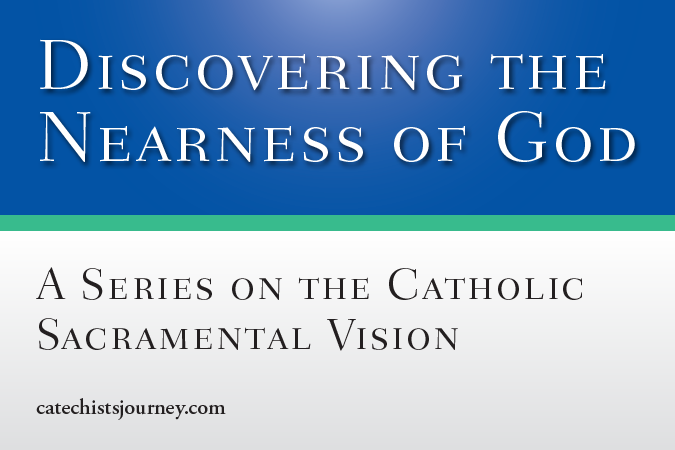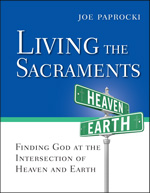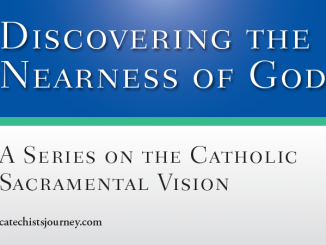
Welcome to the seventh installment of my series “Discovering the Nearness of God: An Eight-Week Series on the Catholic Sacramental Vision.” This week we will explore the Sacrament of Matrimony, with the theme of “Who Loves You?”
Any Frankie Valli and the Four Seasons fans out there? Here’s a blast from the past, 1975 to be exact, of the original “Jersey Boys” singing their hit, “Who Loves You?” (Gotta love those mid-70s styles!) The lyrics of the song repeatedly ask the question, “Who loves you?” followed by the questions, “Who’s gonna help you through the night?” and, “Who’s always there to make it right?” Of course, these questions are rhetorical—a way of reminding someone that beyond any shadow of a doubt, the answer to each question can be found solely in the one asking. It is a way of asserting that, “I’m the one who loves you most!”
Sometimes, we need to be reminded of who loves us most. Throughout Scripture, God reminds his people of his great love for them. A closer look at the actual phrasing of the First Commandment illustrates this tendency on the part of God to remind his children of what he has done for them:
“I am the Lord your God, who brought you out of Egypt, out of the land of slavery. You shall have no other gods before me.” (Exodus 20:2–3)
In fact, if you wanted to paraphrase the First Commandment, the question, “Who loves you most?” would suffice. The answer is unequivocally, “God!” As followers of Jesus Christ, we are called to bring this steadfast love and goodness of God—always having the best interest of others in mind—to others. In Scripture, goodness is not measured by one’s ability to simply avoid doing bad. Rather, it is an active trait, an almost compulsive desire to pursue the best interests of others, often at the cost of one’s own needs. Jesus referred to this kind of love as “laying down one’s life” for others. To lay down one’s life does not necessarily mean to die physically but to set aside your own needs in favor of tending to the needs of others. Parents and spouses do this every day, which is why marriage and parenthood are seen as metaphors for God’s love for his people—love that reached its climax in God’s only Son, Jesus, laying down his life for us.
Whether or not we are married, the institution of marriage serves as an example—a metaphor—for the Christian life. It reminds us that anyone who unselfishly and sincerely puts the needs of others before their own is participating in the divine life. The key to learning how to lay down your life—to set aside your own needs for the needs of others—is to practice what the Church traditionally calls the evangelical counsels:
- poverty—not to be confused with being poor, it is a spirit of simplicity, detachment, and generosity that enables one to put the needs of others first.
- obedience—not a forfeiting of freedom, will, or individuality, but a rich and selfless sharing characterized by a sense of accountability and mutuality.
- chastity—not a prudish repression of one’s sexuality, but a profound respect for boundaries when it comes to issues of intimacy, both physical and emotional.
Each of these three, when practiced for the benefit of another, is an expression of love. To forego material possessions so that another may benefit (poverty); to treat someone as being deserving of respect (obedience); and to express exclusivity to one person (chastity) are all profound ways of reminding someone of who loves them most and ways of imitating the love that God has for us.





Be the first to comment